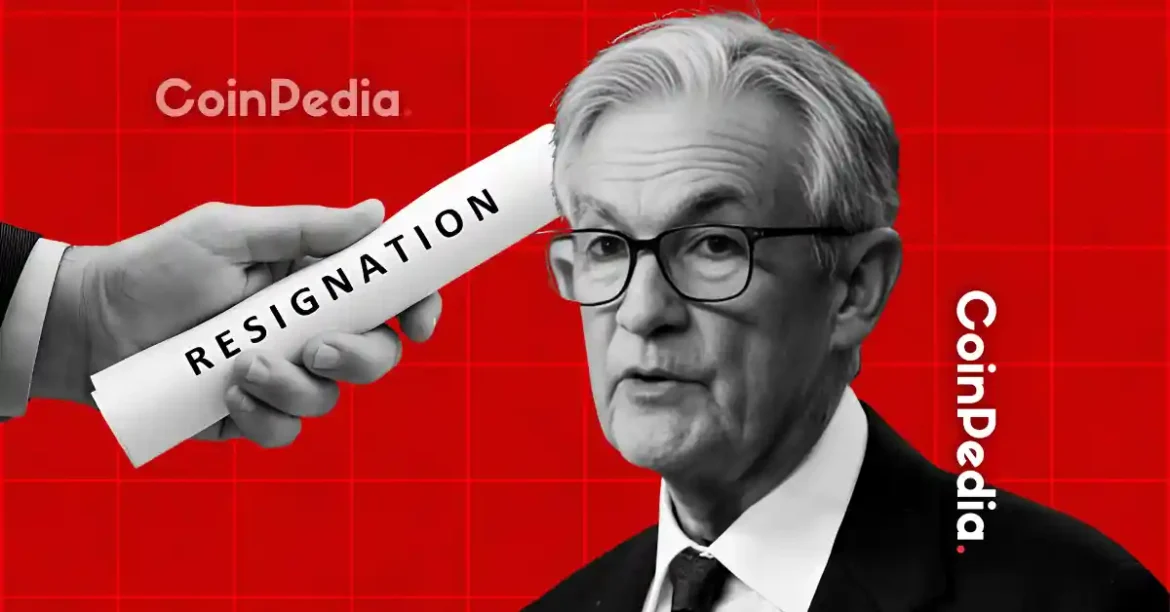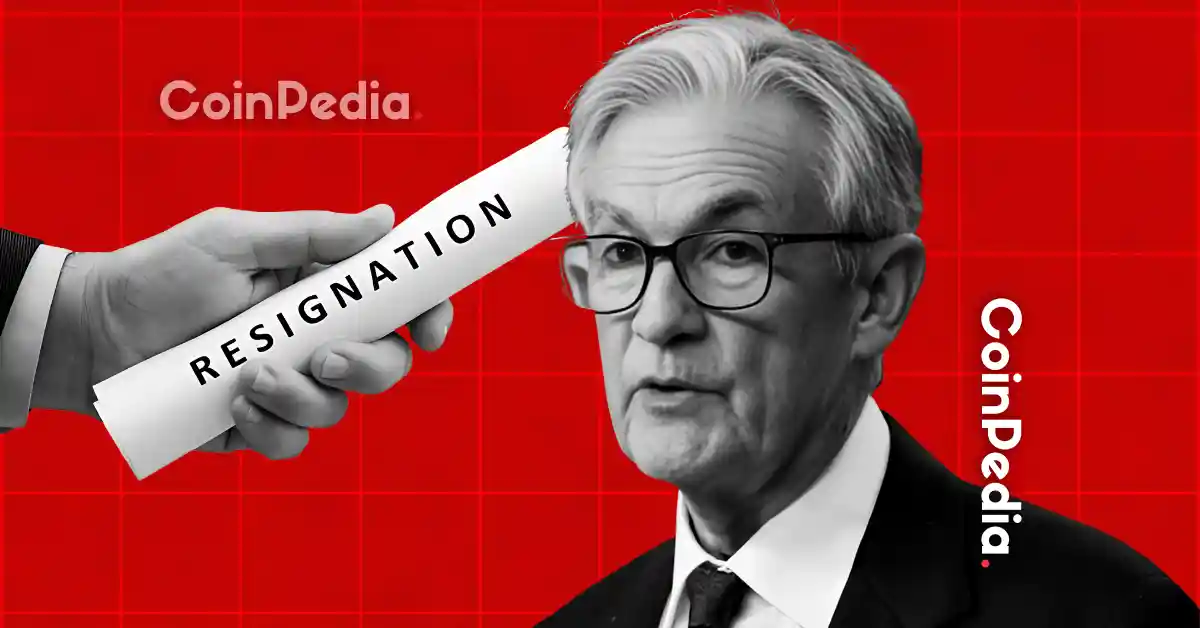The Anatomy of a Viral Hoax: Analyzing the Fake Jerome Powell Resignation Letter
The Genesis of the Deception: An AI-Generated Fabrication
The digital age has ushered in an era where information spreads at the speed of light, but with this rapid dissemination comes the peril of misinformation. The fake resignation letter attributed to Jerome Powell, Chair of the Federal Reserve, exemplifies this duality. The letter, which claimed Powell was stepping down from his position, was quickly shared across social media platforms, gaining traction before its authenticity was questioned.
The letter’s origins trace back to artificial intelligence (AI) technology, which has become increasingly adept at mimicking human writing styles. AI-generated content can be so convincing that even seasoned political observers may struggle to distinguish it from genuine documents. This sophistication poses a significant challenge to the integrity of information in the digital age.
The use of AI in creating the fake resignation letter highlights the evolving landscape of digital forgeries. As AI technology advances, the potential for creating convincing fake documents, images, and videos grows. This raises concerns about the future of misinformation and the ease with which it can deceive the public.
A Senator Falls Prey: Mike Lee and the Amplification of Falsehoods
The incident took a notable turn when Utah Senator Mike Lee shared the fake resignation letter on his social media accounts. Lee’s action lent credibility to the hoax, exposing it to a broader audience. Although Lee promptly deleted the post, the damage had already been done. The incident underscores the responsibility that public figures bear in verifying information before sharing it.
The speed at which misinformation can spread is a testament to the power of social media. A single share from a prominent figure can amplify false information exponentially, reaching millions within hours. This phenomenon underscores the need for public figures to exercise caution and verify information before sharing it.
The incident also highlights the vulnerability of even experienced individuals to sophisticated forgeries. Despite Lee’s political acumen, he was initially duped by the fake resignation letter. This serves as a reminder that misinformation can deceive anyone, regardless of their background or expertise.
The Trump Factor: A History of Disagreement and Distrust
The fake resignation letter surfaced against a backdrop of ongoing tensions between President Donald Trump and Jerome Powell. Trump has repeatedly criticized Powell and the Federal Reserve for their monetary policy decisions, particularly regarding interest rates. This history of disagreement provided fertile ground for the circulation of the fake resignation letter.
The ongoing conflict between Trump and Powell created an environment where the fake resignation letter could gain traction. Those sympathetic to Trump’s views might have been more inclined to believe the letter’s authenticity, while others may have seen it as a reflection of the ongoing conflict between the President and the Fed Chair.
The incident underscores the role of political context in the spread of misinformation. In a politically charged environment, false information can gain traction more easily, as it aligns with pre-existing biases and beliefs. This highlights the need for critical thinking and media literacy in navigating the complex information ecosystem of the digital age.
The Media Response: Debunking the Hoax
As the fake resignation letter gained traction online, media outlets swiftly stepped in to debunk the claims. Fact-checking organizations and news agencies issued reports confirming that Powell had not resigned and that the letter was a fabrication. These efforts helped to stem the spread of misinformation and prevent further confusion.
The media’s role in quickly identifying and debunking the hoax underscores the importance of a vigilant and responsible press in combating the spread of false information. Fact-checking organizations play a crucial role in this process, providing the public with accurate information and helping to counter the spread of misinformation.
The incident also highlights the need for social media platforms to take responsibility for the content shared on their platforms. While media outlets and fact-checking organizations play a vital role in debunking misinformation, social media platforms have a responsibility to prevent the spread of false information in the first place.
The Broader Implications: Trust, Institutions, and the Digital Age
The fake Jerome Powell resignation letter has broader implications for trust in institutions and the integrity of information in the digital age. The incident raises questions about the vulnerability of individuals and organizations to increasingly sophisticated forms of misinformation.
The ease with which AI can create convincing forgeries and the speed at which these forgeries can spread online pose a significant challenge to maintaining trust in institutions and ensuring that individuals have access to accurate information. The incident underscores the need for a multi-faceted approach to combating misinformation, including media literacy education, fact-checking, and social media platform accountability.
The incident also highlights the potential consequences of misinformation for individuals and institutions. The fake resignation letter, even if debunked, can have lasting effects on public perception and trust in institutions. This underscores the need for proactive measures to prevent the spread of misinformation and protect the integrity of information in the digital age.
Lessons Learned: Verification, Critical Thinking, and Digital Literacy
The Jerome Powell fake resignation letter incident offers several important lessons for navigating the information ecosystem of the digital age.
The Importance of Verification
Before sharing information online, it is crucial to verify its authenticity through reliable sources. This includes checking with official sources, consulting fact-checking organizations, and being wary of information that seems too good or too bad to be true. Verification is a critical step in preventing the spread of misinformation and ensuring that accurate information is shared.
The Need for Critical Thinking
It is essential to approach information with a critical eye, questioning its source, motivations, and potential biases. Critical thinking involves being aware of the potential for misinformation and being willing to challenge one’s own assumptions. By approaching information critically, individuals can better discern truth from fiction and make informed decisions.
The Value of Digital Literacy
Understanding how information is created, disseminated, and manipulated online is crucial for navigating the digital age. Digital literacy involves being aware of the potential for AI-generated forgeries and the techniques used to spread misinformation. By developing digital literacy skills, individuals can better navigate the complex information ecosystem of the digital age.
Moving Forward: Building Resilience Against Misinformation
In the wake of the Jerome Powell fake resignation letter incident, it is essential to take steps to build resilience against misinformation. This includes investing in media literacy education, supporting fact-checking organizations, holding social media platforms accountable, and promoting transparency and accountability.
Investing in Media Literacy Education
Media literacy education provides individuals with the skills and knowledge they need to critically evaluate information and identify misinformation. By investing in media literacy education, we can equip individuals to navigate the information ecosystem of the digital age and make informed decisions.
Supporting Fact-Checking Organizations
Fact-checking organizations play a crucial role in debunking false claims and providing the public with accurate information. By supporting fact-checking organizations, we can ensure that they have the resources they need to effectively combat misinformation.
Holding Social Media Platforms Accountable
Social media platforms have a responsibility to prevent the spread of misinformation on their platforms. By holding social media platforms accountable, we can encourage them to implement measures to prevent the spread of false information and protect the integrity of information in the digital age.
Promoting Transparency and Accountability
Transparency and accountability are essential for maintaining trust in institutions and ensuring that individuals have access to accurate information. By promoting transparency and accountability, we can build a more resilient and informed society.
The Aftermath: A Lingering Shadow of Doubt
Even after the debunking of the fake resignation letter, a lingering shadow of doubt remains. The incident has eroded trust in institutions, highlighted the vulnerability of individuals to misinformation, and raised questions about the integrity of information in the digital age.
The lingering shadow of doubt underscores the need for proactive measures to prevent the spread of misinformation and protect the integrity of information. It also highlights the need for ongoing efforts to build resilience against misinformation and ensure that individuals have access to accurate information.
The Path Ahead: Navigating the Information Ecosystem
The Jerome Powell fake resignation letter incident serves as a wake-up call, reminding us of the challenges we face in navigating the complex and often treacherous information ecosystem of the digital age. By embracing verification, critical thinking, and digital literacy, we can equip ourselves to discern truth from fiction and build a more resilient and informed society.
The path ahead involves a multi-faceted approach to combating misinformation, including media literacy education, fact-checking, social media platform accountability, and promoting transparency and accountability. By taking proactive measures to prevent the spread of misinformation, we can protect the integrity of information and build a more informed and resilient society.
The digital age presents both opportunities and challenges for the integrity of information. By embracing the lessons learned from the Jerome Powell fake resignation letter incident, we can navigate the information ecosystem of the digital age with greater confidence and discernment.





